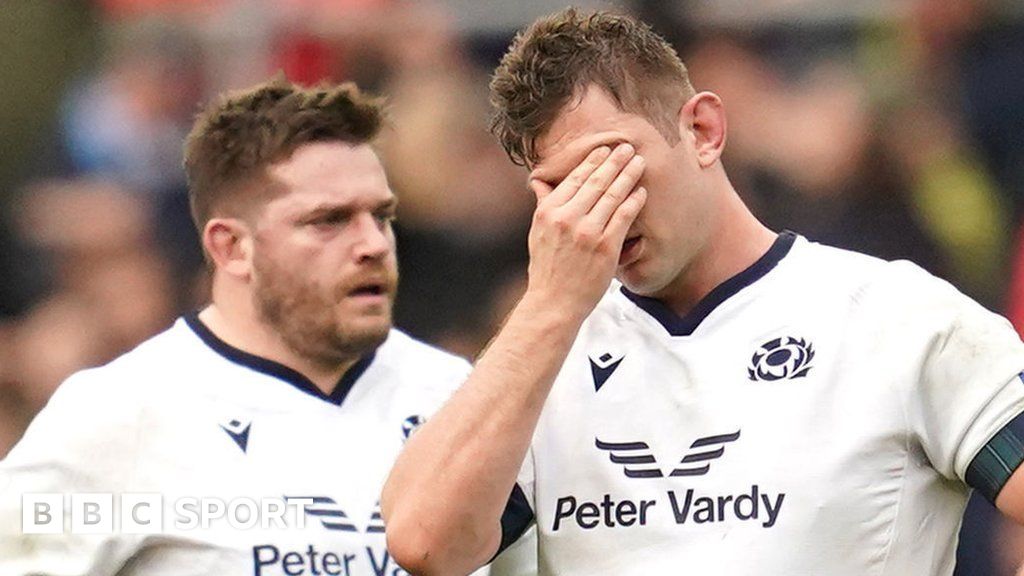This is a trend going back years, vast chunks of time in games – 32 minutes, 36 minutes, 39 minutes, 59 minutes – when Scotland did not register a solitary score against Ireland.
So if the Irish players and media do indeed believe Scotland are a team that go for 60 minutes then fade, there might be a good reason for them thinking it. It’s not going to change until Scotland do something about it.
Grant Gilchrist spoke about some of this earlier in the week. The lock was still shaken by Scotland’s loss away to Italy on matchday three – no Scottish points in 50 minutes while Italy were notching 21 on the spin – and then revisited the World Cup game in Paris.
He said in the wake of that annihilation he got no peace. Every time he closed his eyes he could see his defensive error that started that rout in the second minute.
Gilchrist, as honest as the day is long, talked about how Scotland need to be stronger mentally. There’s no doubt this team is capable of resilience but there’s self-destruction there, too, and it seemingly cannot be eliminated.
It revisited them again in Rome. A weird deviation from the gameplan, a lack of discipline, an epidemic of poor decision-making under pressure, a psychological weakness when the heat was truly on. A glorious chance of their greatest ever Six Nations championship damaged probably beyond repair.
Gilchrist came across as emotional when reliving it all on Tuesday. It’s hard to know if that’s a good thing (he’s using it as fuel) or a bad thing (he’s still damaged by it).
Townsend has brought in Stafford McDowall in an attempt to fill the giant hole left behind by the injured Sione Tuipulotu. What a miss he’s been. McDowall’s first job as a starting Scot in the Six Nations is to deal with Bundee Aki, one of Ireland’s pre-eminent players of the era. Gulp.

